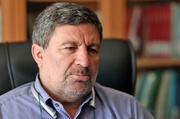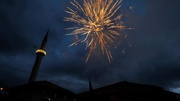“A conservative estimate is a million people without food,” said a senior Red Cross official on Monday, according to Al-Alam.
Simon Eccleshall, crisis management chief of the International Federation of Red Cross and Red Crescent Societies (IFRC), also stated that the Syrian Arab Red Crescent (SARC), a local member of the IFRC, only has access to “about 85 percent of the territory in Syria on a regular basis.”
SARC can provide supplies to just half of the six million Syrians who have been forced to leave their homes but are still in the country, Eccleshall added.
The Red Cross official said a catastrophe could occur in winter, particularly in areas with severe violence, and that the number of people needing aid could spiral.
Meanwhile, Benoit Carpentier, an IFRC spokesman, has said that there are several areas in Syria that have not been “supplied for months due to the conflict and suburbs around Damascus for almost a year.”
“Obviously, the worst situation is in besieged areas and areas with severe violence. One should also remember that many have not had any income for more than two years. Female-headed households is another big group facing food insecurity,” Carpentier stated.
SARC has 3,000 volunteers in Syria, 32 of whom have been killed in the conflict.
The IFRC under-secretary general, Walter Cotte, says the main challenge for the organization is the normalization of the situation for many Syrians.
“We need to really highlight that there is a big humanitarian crisis killing people every day,” Cotte said.
Bombing in Damascus kills 4
In other developments, a suicide bomber blew himself up in central Damascus Tuesday and killed four people, the state media said, while a Syrian mother superior accused opposition fighters of abducting 12 nuns from a predominantly Christian village near the capital.
According to AP, Syria's state TV reported that a suicide attacker set off his explosive vest in central Damascus, killing four and wounding 17 others. It TV gave no further details about the blast in the central Jisr Abyad neighborhood and what the target was.
Such blasts in Damascus are not uncommon and have killed scores of people in the city.
The mother superior at Saidnaya Convent, Febronia Nabhan, said the nuns and three other women were taken the day before from the predominantly Christian village of Maaloula to the nearby rebel-held town of Yabroud, which also has a large Christian population.
Her comments could not be independently confirmed. The Britain-based Syrian Observatory for Human Rights, which has a network of activists around the country, said that "the fate of nuns at the Mar Takla Convent in Maaloula is unknown." It added there were conflicting reports on whether they were taken to a nearby area or not.
The Observatory says it received information late Monday saying that the nuns "are still alive." It gave no further details.
Nabhan told The Associated Press that the Maaloula convent's mother superior, Pelagia Sayaf, called her late Monday from Yabroud and said they were all "fine and safe."
MNA
END
























Your Comment